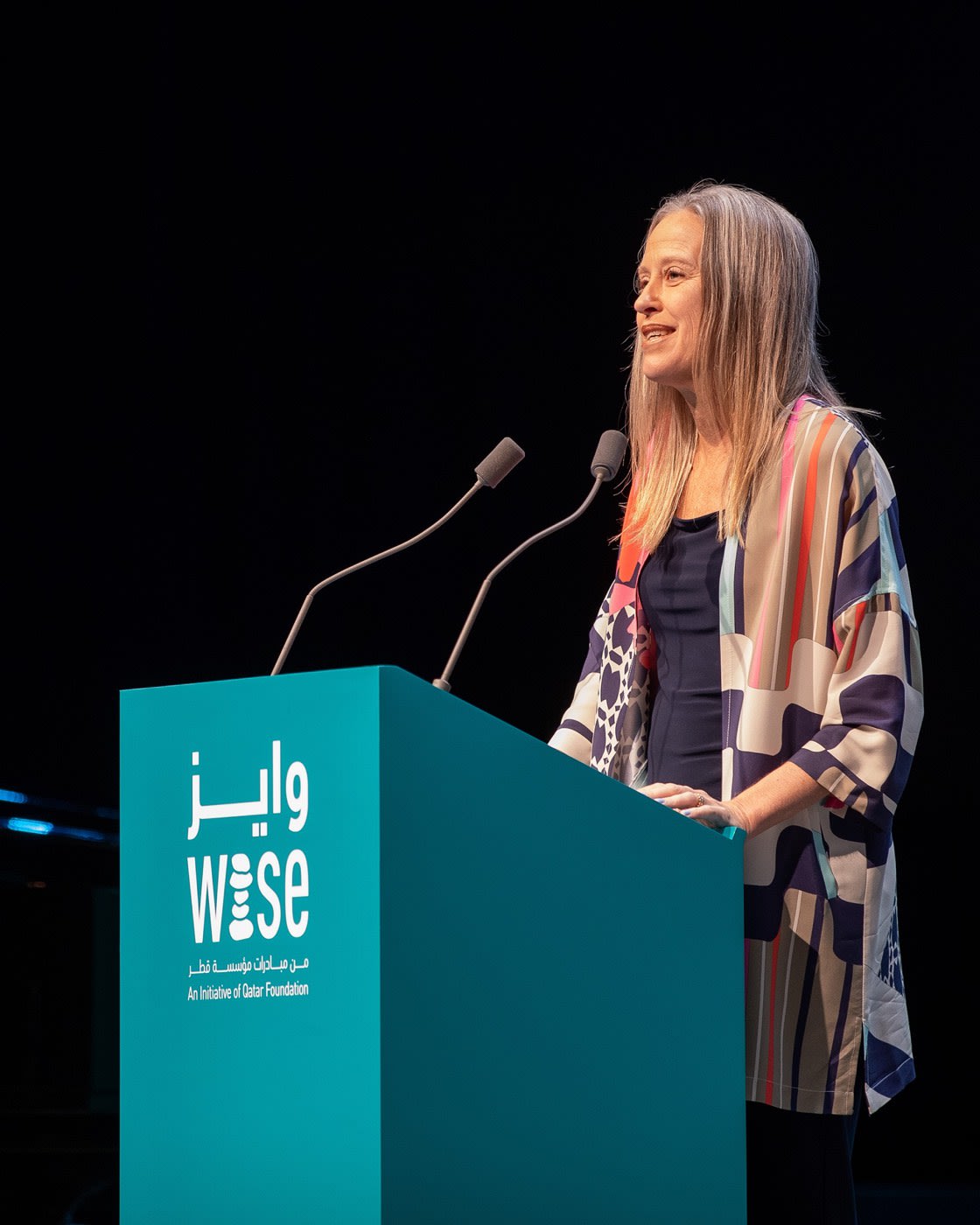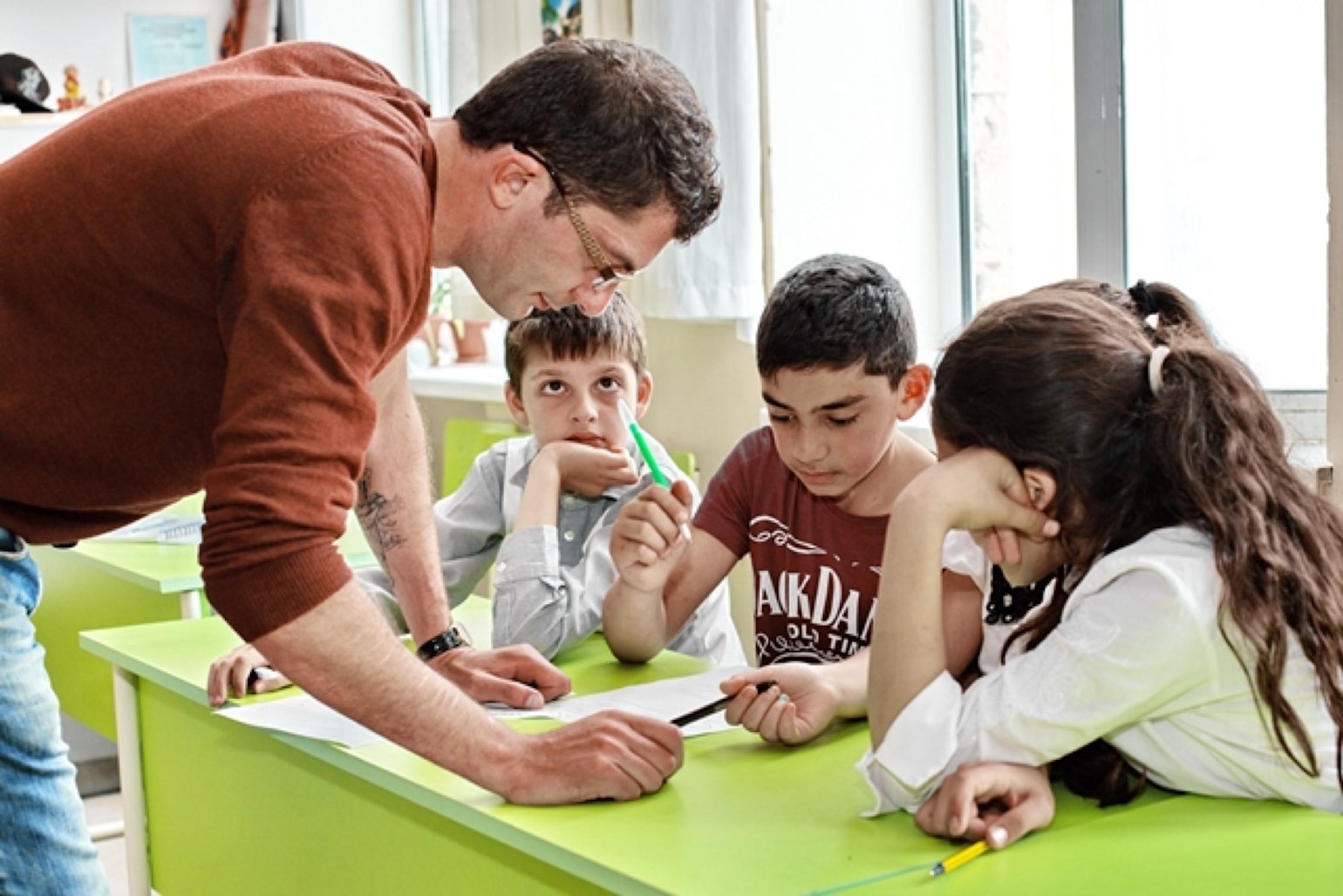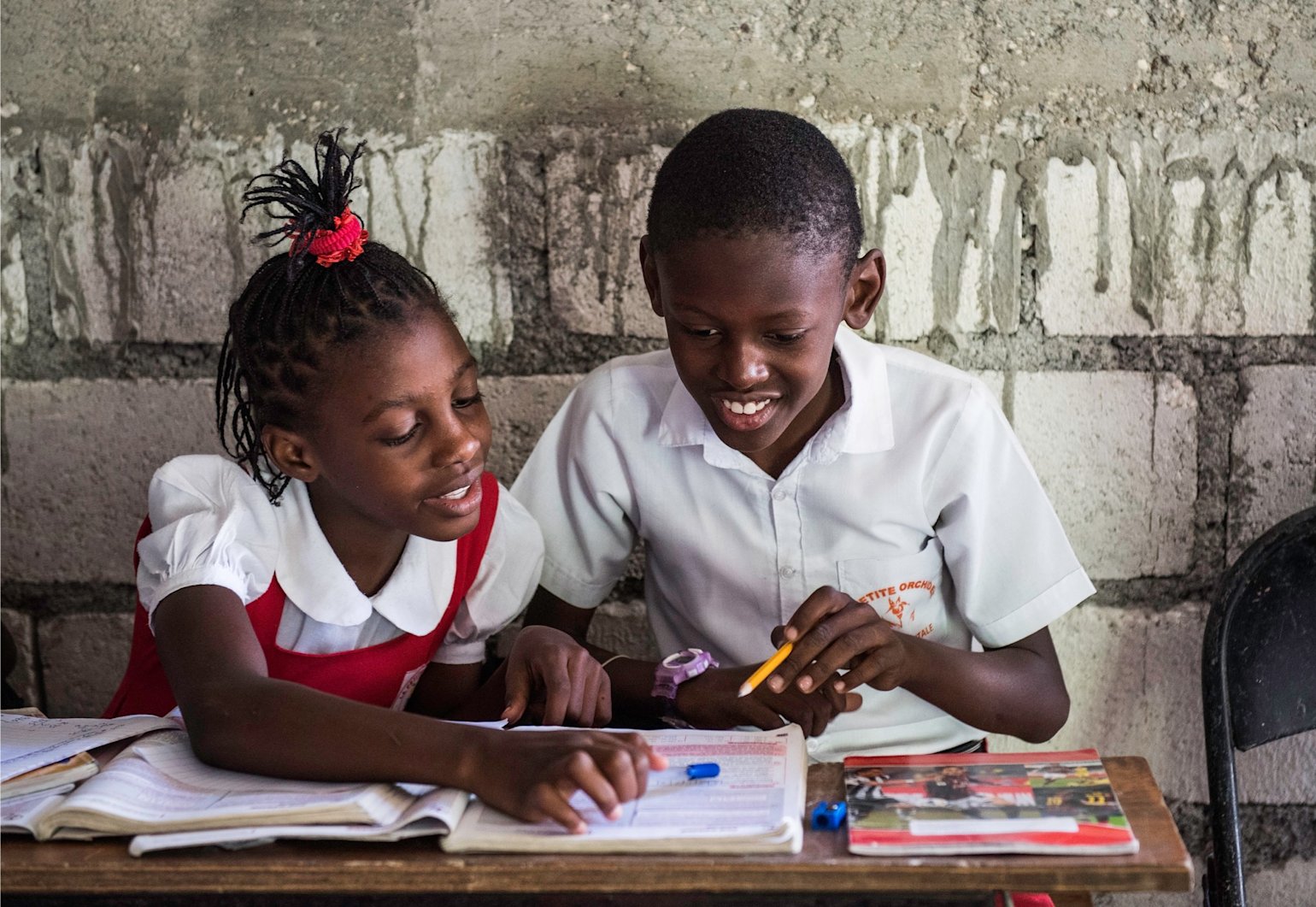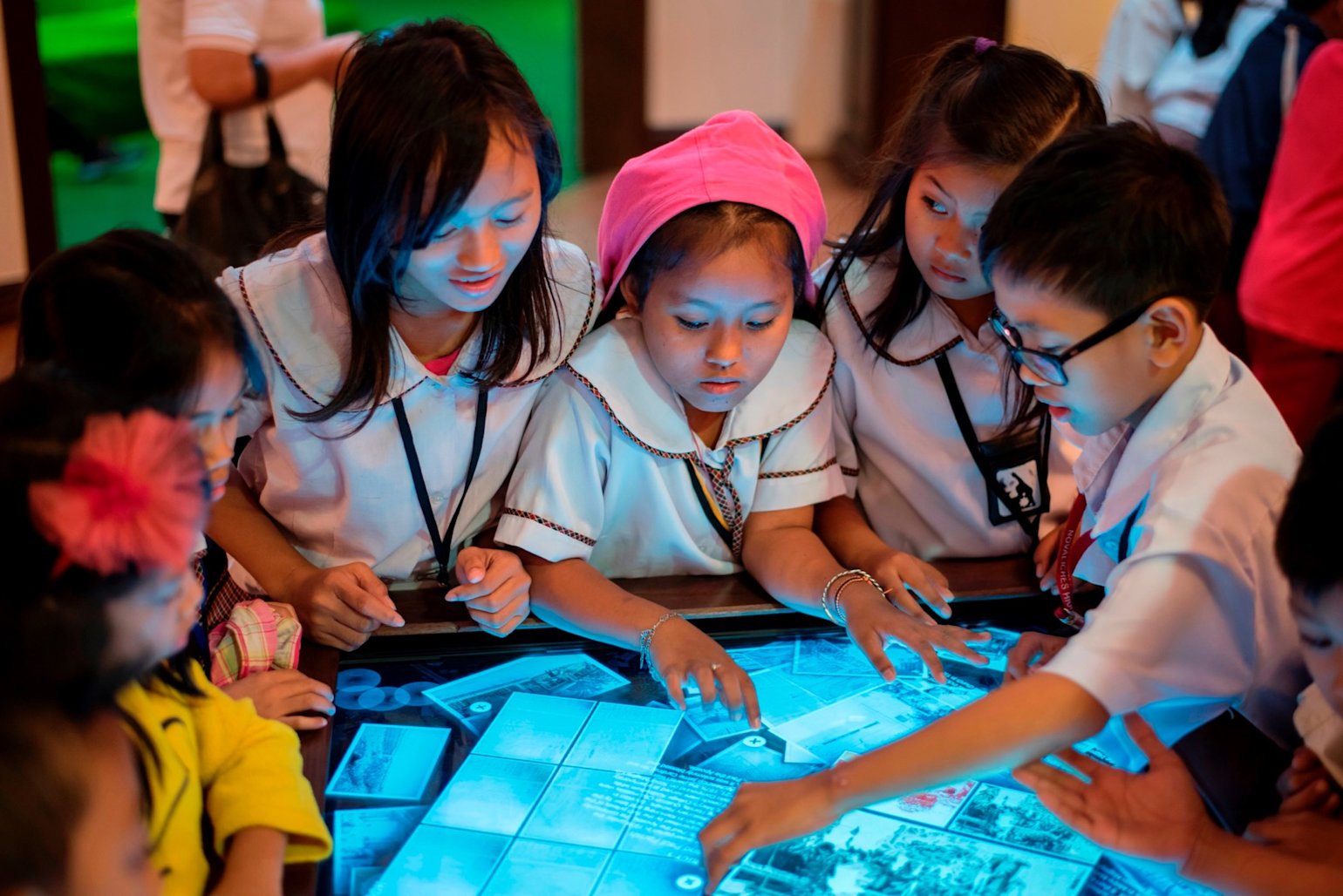Coronavirus (COVID-19) Updates
For the latest COVID-19 information and updates from Qatar Foundation, please visit our Statements page

On the International Day of Education, Wendy Kopp - the 2021 WISE Prize for Education Laureate, an accolade awarded by QF’s global education initiative WISE – speaks about fostering learning through leadership
Wendy Kopp, CEO & Co-founder, Teach For All, was awarded the 2021 WISE Prize for Education at the 2021 WISE Summit held in Qatar.
WISE, which is Qatar Foundation’s global education think tank, recognized Kopp for her work with Teach For All – a locally rooted, globally informed network that aims to develop leadership in classrooms and communities, and help children all over the world fulfill their potential.

Wendy Kopp at the 2021 WISE Summit event, held in Doha.
Where did the idea of Teach For All come from?
I came to this idea when I was a college student, more than 30 years ago. As a public policy major and a concerned college student and citizen, I had become more and more disturbed about the inequities in our country [the US], and about the fact that the circumstances of a child’s birth really predicted their outcomes.
At the same time, I had this sense that I was one of thousands of graduating college seniors who was just searching for a way to make a real difference against those inequities. That is what led me to the idea that became Teach For America, and ultimately that inspired the Teach For All network.
I then spent about 15 years with my head down, working to make Teach For America bigger and better to address the significant challenges in my own country. I started meeting people all around the world who were determined that something similar needed to happen in their countries. They were looking for help, and that's what inspired the Teach For All network.
How are teachers recruited?
The Teach For All network consists of 61 independent, locally led organizations that share a common purpose around developing collective leadership to ensure all children fulfill their potential. And they also share a common approach for developing collective leadership, by recruiting promising diverse leaders and asking them to commit at least two years to teaching in under-resourced contexts, while investing in their development as teachers and leaders during the two years and beyond.
Right now, the network partners have about 15,000 teachers in the midst of their two-year teaching commitment, and about 90,000 alumni who really never leave the work – about 75 percent of them are working full-time, long-term, to improve education and the quality of life in low-income communities.

Teach For All network in Armenia.
Disclaimer: This image was taken before the implementation of COVID-19 health guidelines.
Is there much collaboration across different countries and networks?
I think our learning curve became so much quicker after launching Teach For All. We've seen that there are remarkable similarities in the roots of the issues we're addressing from place to place. The circumstances of the most marginalized children in each country are almost more similar to each other than they are to the more privileged children in their own countries. And the implication of this is that the solutions are much more shareable than we’ve assumed in education. It's been so powerful to see.
At the same time, there are so many brilliant people around the world, in such diverse contexts and cultures, that inspire different ways of thinking. It's been incredible to have the chance to learn from the new adaptations and innovations and spread them across the network. There are alumni working in government ministries around the world who are in an education policy community of practice, sharing solutions. There are teachers and alumni in an early insights community who are trading solutions about how to strengthen early childhood education.
And this is just the beginning. There are many other ways in which staff members, teachers, alumni are learning from each other, and we've seen just how much that can increase progress over time.
When you say ‘learning from each other’, how is this facilitated through the organization?
The purpose of the global organization within the Teach For All network is essentially to increase progress by helping everyone learn from each other. Our team fosters community and looks to understand what accounts for success on different dimensions, in different contexts, then spreads those insights through learning experiences, through a learning portal which contains thousands of resources, and through directly coaching and consulting people across the network.

Teach For All network in Haiti.
Disclaimer: This image was taken before the implementation of COVID-19 health guidelines.
How did the pandemic affect Teach For All?
We saw the teachers and alumni across our network just lean in to keep their own students learning and, very quickly, to work with others, including their government ministries, to keep many other students learning. We saw such tremendously heroic efforts on the part of our network teachers and educators to leverage whatever the available technology was - whether it was phones or radio or TV - and we saw them training tens of thousands of other teachers and digital learning strategies.
It affirmed the caliber and character of the leaders our network partners are developing, and it also really affirmed the power of a global network to help them learn from each other. We were seeing solutions flying across borders.
How does Teach For All expand into new countries?
In some cases, we will build awareness about the Teach For All approach and the unifying idea and purpose. But then we really step back and wait for local social entrepreneurs to decide that they believe this needs to happen in their countries. We then support them and help them learn from others who have adapted this approach into similar contexts, as those local leaders develop the plans and build the government support and private sector support necessary to launch.
Once we're confident that they are pursuing the unifying purpose of our network, and that they’ve built the capacity to do that, then they become a partner of the network. And we do everything we can to learn from them and contribute to their impact and success.

Teach For All network in Philippines.
Disclaimer: This image was taken before the implementation of COVID-19 health guidelines.
What does winning the WISE Prize for Education mean for you and for the organization?
It’s just been a huge boost for the whole network. It's such a tribute to all the people around the world who have adapted and innovated on this approach in their countries, particularly all the teachers and alumni who’ve poured so much of themselves into the work of ensuring that all students fulfill their potential.
And specifically, the prize is going to contribute to something we recently created called the Future of Education Fund, which is supporting our network partners to sustain and spread the new innovations and practices and mindsets that have emerged in this pandemic era and that can accelerate progress towards a stronger and more equitable education system.
What does the future hold for Teach For All? What are you hoping to achieve?
We are working to continue to grow our force of diverse and extraordinary leaders, to support them and orient them toward providing an education that develops students as leaders who can shape a better future. We are striving to build a deeply interconnected community among all these teachers, alumni educators, and staff members, so that we can speed up progress by fostering more cross-border learning in education.

